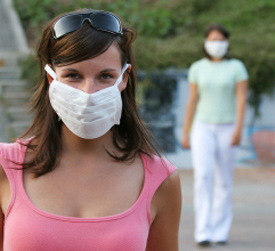
Future potential spread of the coronavirus is impacting world trade and threatens a global economic recession and inflection point. For the first time, Illness is now a major driving force. We first reported this virus way back in 2010 and regularly since July 2015 as a predictable surprise: a known unknown to most. It is not a Black Swan; it was foreseen!
Forewarned is forearmed and forearmed is protection against unpleasant possibilities and this inflection point will most likely change everyone's future profoundly.
Here are some actions you could take offered by and our friends at WavePoint and BCG and McKinsey.
Companies are asking people to work from home (we have always worked from our homes since 2003). We think the latter will become a long-term and rapidly growing trend as people reduce traveling time, buy more online, and increasingly recognize the benefits to their health of staying home. More emerging, potential behavioral trends here. Begin regularly evaluating predictable surprises, be prepared and act in time, while others lose their shirt through inattention to the future.
Last updated: 08 February 2026